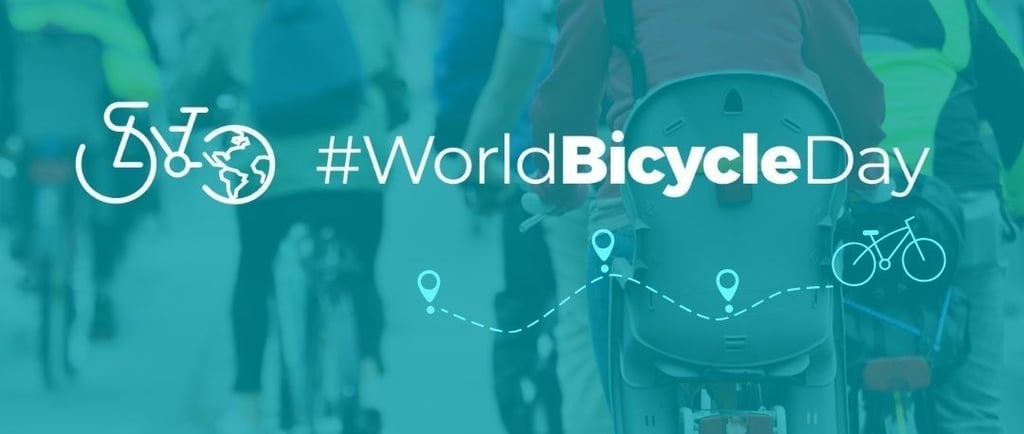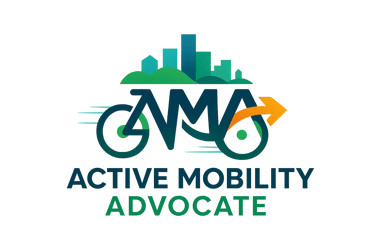World Bicycle Day 2024
Celebrate World Bicycle Day with us! Discover the origins, significance, and global impact of this special day dedicated to promoting cycling as a sustainable, healthy, and inclusive mode of transportation. Learn how bicycles contribute to cleaner environments, improved health, and social equity. Join the movement and find out how you can participate in making our world more bike-friendly.
MAIN PAGE
Wayne Odhiambo
3/1/20253 min read


Celebrating World Bicycle Day at the World Bank
A Front-Row Seat to Global Change—and a Personal Reflection
On June 3rd, the world marks World Bicycle Day—a celebration of one of humanity’s simplest yet most transformative inventions. The bicycle is more than a means of transport: it’s a symbol of sustainability, equity, and health. This year, I had the privilege of celebrating this day from a truly unique vantage point—inside the World Bank, at the launch of a landmark report on cycling and development.
As an active mobility advocate from Nairobi, being at the heart of a global institution where policy, finance, and infrastructure planning converge was both energizing and eye-opening.
A Global Stage for Local Solutions
The World Bank’s event commemorating World Bicycle Day wasn’t just ceremonial. It was anchored by the launch of a new report that puts cycling at the center of development priorities. The report emphasized three core messages:
Cycling is a powerful tool for equitable access, especially for women, youth, and low-income communities.
Investing in cycling infrastructure has high returns—economically, environmentally, and socially.
Governments and financiers must embed active mobility in national transport and climate plans.
Hearing policymakers, researchers, and civil society leaders from Latin America, South Asia, and Africa share stories of transformation reminded me that the cycling revolution is not confined to Copenhagen or Amsterdam. It’s alive in Dakar, Delhi, and Nairobi too.
A Personal Moment of Alignment
For me, World Bicycle Day wasn’t just a global milestone—it was a personal one.
Over the past year, I’ve built Active Mobility Advocate to shine a light on the power of walking and cycling, especially in developing cities where non-motorized transport is both common and undervalued. Being at the World Bank reinforced a truth I’ve always believed: active mobility isn’t a side issue—it’s central to development.
I thought about Nairobi’s cyclists navigating chaotic highways. About young people in rural Kenya biking miles to school. About women whose mobility is constrained by fear or infrastructure. And I realized—this fight is far from over, but the momentum is growing.
The Numbers That Matter
Here are a few key takeaways from the World Bank’s latest cycling report:
70% of trips in many African cities are already made by walking or cycling, yet less than 5% of transport budgets go to non-motorized transport.
A $20–$30 per capita investment in cycling infrastructure can significantly reduce traffic deaths and improve air quality.
Cities with protected bike lanes see more than double the uptake in cycling compared to cities without them.
This data speaks volumes: cycling is not just cheap—it’s smart.
So, What Next?
World Bicycle Day is a celebration—but also a call to action. Here’s what we can all do:
✅ Push for infrastructure: Bike lanes, parking, and pedestrian zones must be prioritized.
✅ Challenge the stigma: Cycling is for everyone—not just the poor or the sporty.
✅ Tell your story: Whether you ride daily or dream of doing so, your voice matters.
For me, the day ended with more than just inspiration. It ended with renewed determination—to keep building this platform, to spotlight everyday cyclists, and to demand the space, safety, and respect that all road users deserve.
Resources from the Event
Want to learn more? Here are links to key materials shared during the event:
Final Thoughts
Cycling connects us—to opportunity, to each other, to the planet. On this World Bicycle Day, I saw how local stories like mine are part of a global mosaic. Whether you’re riding to work in Washington, weaving through traffic in Accra, or organizing a bike-to-school event in Kisumu, you are part of a movement.
Let’s keep pedaling—toward cities that are breathable, inclusive, and truly made for people.
